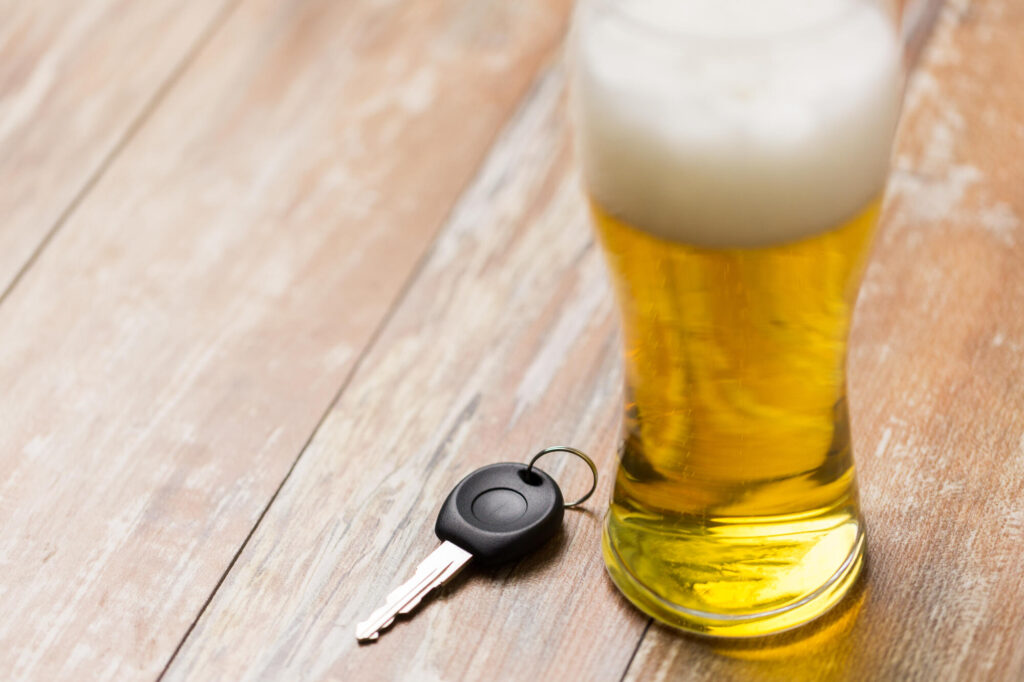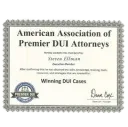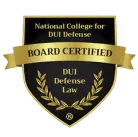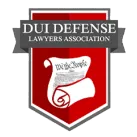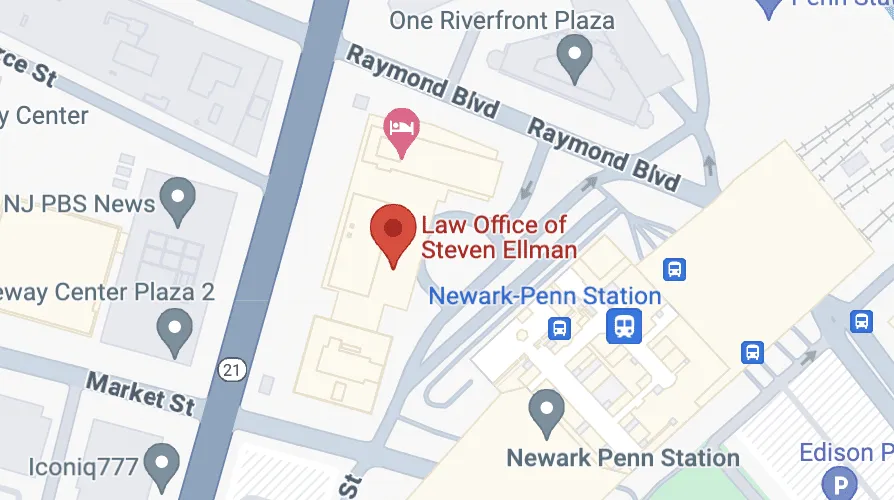How to Prepare for Successful DUI Case Outcomes
What are effective strategies for defending your DUI case? Discover ways to prepare your legal defense, and learn how to protect your future today.
According to a December 2024 CBS News article, drunk driving cases have increased in New Jersey. In 2023, the state’s police departments dealt with 29,000 impaired drivers. Moreover, they say driving under the influence (DUI) was a significant factor in many of the 600+ road fatalities in 2024.
Given that impaired driving can result in preventable injuries and deaths, it’s unsurprising that New Jersey DUI case penalties are harsh. For this reason, anyone facing a DUI charge in the state must carefully prepare their legal defense strategies. Otherwise, they could face hefty fines, even lengthy jail times.
To that end, our team at the Law Office of Steven Ellman put together this New Jersey DUI case preparation guide. Read on to learn viable case dismissal tricks and strategies for protecting your rights if you (or someone you care about) face a DUI charge.
Familiarize Yourself With New Jersey DUI Laws
Knowing DUI laws is vital as it allows you to understand your rights and the penalties you might face. Such knowledge can also help you identify potential defenses, enabling you to make more informed decisions and navigate the legal process more effectively.
How New Jersey Defines DUI
In New Jersey, the legal, official term for DUI is driving while intoxicated (DWI). The laws surrounding this, including penalties and punishments, fall under the New Jersey Revised Statutes Section 39:4-50.
Under state statutes, it’s illegal for people to operate a motor vehicle on public roads if they:
- Have a blood alcohol concentration (BAC) of at least 0.08%
- Are under the influence of a substance, such as a narcotic, habit-producing drug, or hallucinogenic
- Are under a combination of such substances
Moreover, it’s illegal for vehicle owners to allow someone else who meets the above conditions to operate their car.
Also, please remember that a BAC of 0.08% isn’t difficult to reach. As the National Institute on Alcohol Abuse and Alcoholism (NIAAA) explains, a typical adult’s BAC can rise to this level after about four drinks (for women) or five or more drinks(for men) within two hours.
Consequences of NJ DWI
The consequences of DUI convictions in New Jersey depend on the defendant’s BAC and whether it’s their first or subsequent charge.
For instance, a person facing a first-time offense can face the following:
- BAC of 0.08% but not over 0.10%: A fine of at least $250 but not over $400, detainment of at least 12 to 48 hours, possible imprisonment of up to 30 days, installation of an ignition interlock device
- BAC of 0.10% but not over 0.15%: A fine of $300 to $500, imprisonment for up to 30 days, suspension of license, and installation of an ignition interlock device for 7 months to one year
- BAC of 0.15% or higher: More severe fines and penalties, such as a longer license suspension and ignition interlock device installation
Individuals charged with second DWI offenses can expect even more stringent punishment, including:
- A fine of $500 to $1,000
- A one to two-year suspension of license
- Up to 90 days of imprisonment
- Up to 30 days of community service
- Mandatory attendance at the Intoxicated Driver Resource Center (IDRC)
- Two to four years of using an ignition interlock device
The most stringent fines and penalties apply for drivers who commit a third DWI in NJ (or subsequent offense) within ten years from the second. They include:
- A mandatory 10-year license suspension
- A minimum 180-day jail sentence
- A minimum $1,000 fine
- Community service
- Ignition interlock device installation
Book an Initial Consultation With an Experienced DWI Lawyer
As you’ve discovered, severe consequences can happen to you or a loved one charged with DUI/DWI in New Jersey. For this reason, the next step you must take ASAP is to speak with a highly experienced DWI defense attorney.
A New Jersey DWI lawyer can guide you through the entire process, including:
- Discussing your case to identify potential defenses
- Explaining DUI court proceedings
- Advising you on your rights
Depending on the attorney, you may not have to pay for anything yet. For instance, our award-winning lawyer, Attorney Steven Ellman, can provide a free, confidential consultation at the Law Office of Steven Ellman. During this initial appointment, he’ll listen to what you have to say, such as the circumstances surrounding your arrest, and inform you of the viable strategies he and his team will use to protect your rights after the DUI arrest.
Decide on Which NJ DWI Lawyer to Enlist
After an initial consultation with your prospective DWI attorneys, choose the one who:
- Made you feel heard, respected, and comfortable
- Has previous clients and legal peers who highly recommend them
- Has the knowledge and expertise needed to defend you and win your case (as evidenced by their service history, track record, and success rate)
Do your homework on each prospective lawyer’s background and history, too. For instance, ensure they have a good, active standing with the New Jersey State Bar Association.
NJCourts.gov, the official website of the New Jersey Judiciary, allows you to check lawyers’ standing through their online Attorney Search tool. It provides invaluable information, such as:
- NJ Attorney ID: Used to identify and confirm an attorney’s credentials, license to practice, and good standing
- Bar Admission Date: The date a lawyer has received their official admittance to the practice, marking the beginning of their legal career and showcasing their length of legal service history
- A Good Active Standing Status: Confirms a lawyer complies with New Jersey laws, including IOLTA requirements for private practice attorneys and continuing legal education (CLE) requirements, and is eligible to practice New Jersey law
If you use NJCourts.gov’s online Attorney Search tool to look up Attorney Steven Ellman, you’ll find that he ticks all the right boxes. He has an NJ Attorney ID and a good, active standing with the bar, and his admission date was in 1990.
Tell Your DUI Case Attorney Everything
Once you’ve enlisted a DUI/DWI attorney, tell them everything you can remember before, during, and after the arrest. Some of the most crucial details to share with them are:
- The exact time and location of the incident and if you were with anyone
- The way the police initiated the traffic stop or arrested you
- What you were doing before and during the stop
- Any conversation you had with the officers
- If the police had you undergo any field sobriety tests (FSTs) and breathalyzer/blood tests and what they said before and after administering the procedures
- If the police collected any physical evidence
- If you have any physical evidence (e.g., photos and videos of the incident)
Every detail can matter, even if you think it may be inconsequential. It’s best to let your lawyer decide which information is helpful for your case and which isn’t.
Build a Strong Case With Your Lawyer
Your DWI attorney will build your defense case using the details you’ve provided, so it’s vital to share everything you can about the incident. Depending on what you say, your lawyer may use one or more strategies to get your charges reduced or even dismissed, including but not limited to the following.
Lack of Proof of Operation Beyond a Reasonable Doubt
In New Jersey, the state must establish that a DWI defendant was operating the vehicle while intoxicated. So, depending on your case, you might not even have been operating your car!
For example, say you were inside your car, parked in front of a bar at 2 a.m., but were in the passenger seat. You had the lights and the engine running, but only because it was cold and you were trying to call someone to drive you back home. Unfortunately, the police saw you and assumed you were going to drive your car while drunk.
In that case, your lawyer can build a defense strategy that you did not intend to operate your car; therefore, the court cannot charge you with DWI.
Certification Deficiencies
All law enforcement officers operating an Alcotest 7110 device in New Jersey during an arrest must have undergone proper training and certification. Such credentials must be current, and your defense attorney will acquire copies. If the officer who administered your test didn’t possess such certifications, your test results would be inadmissible in court.
Breathalyzer Problems
As WebMD explains, breath alcohol tests used by the police are the most accurate, but they can still return inaccurate results due to factors like:
- Smoking
- Having trace amounts of alcohol in the mouth (such as from breath fresheners or mouthwash)
- Glitchy software
- Miscalibrated devices
Failure to follow a breath test device’s proper operation can also lead to inaccurate results. In this case (or if any of the above is true), your attorney will use it as part of your DWI case defense.
Let Attorney Steven Ellman Handle Your DUI Case
Given that a DUI case in New Jersey can lead to severe consequences, you’d want to ensure you prepare for yours as thoroughly as possible to protect your rights. A key step to this is partnering with a highly experienced and skilled legal team, such as the Law Office of Steven Ellman.
Atty. Steven Ellman is one of New Jersey’s premier defense lawyers. For over thirty years, he has successfully defended and won the most complex DUI/DWI cases. With his skills, knowledge, and expertise, he and his team will go above and beyond to help you fight your DUI/DWI charge.
Contact our law office today to request your free, non-obligatory consultation.

